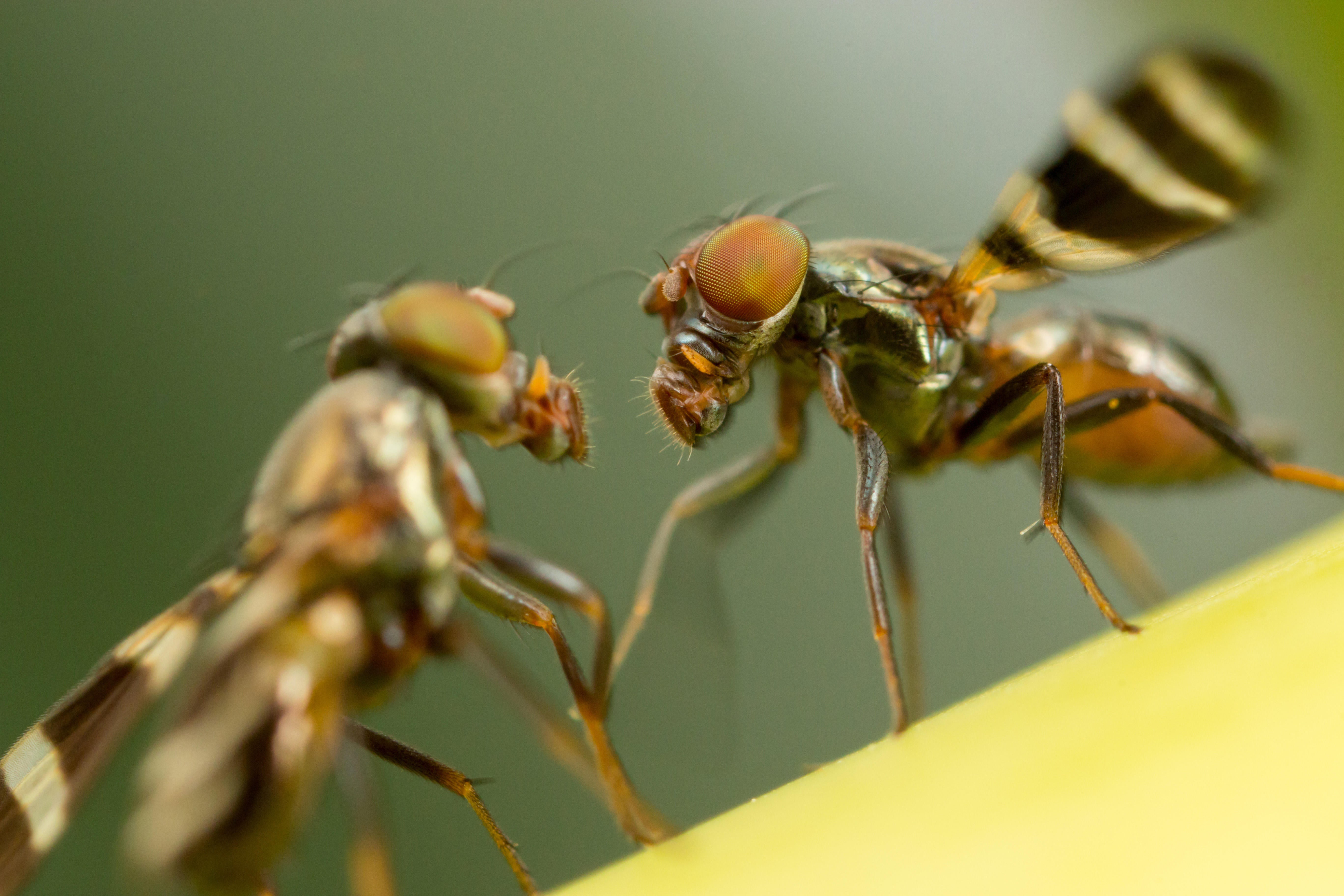Fruit flies prioritise mating over survival, new study suggests
Researchers have found that found that fruit flies continue to engage in courtship and mating, regardless of infection.

Your support helps us to tell the story
From reproductive rights to climate change to Big Tech, The Independent is on the ground when the story is developing. Whether it's investigating the financials of Elon Musk's pro-Trump PAC or producing our latest documentary, 'The A Word', which shines a light on the American women fighting for reproductive rights, we know how important it is to parse out the facts from the messaging.
At such a critical moment in US history, we need reporters on the ground. Your donation allows us to keep sending journalists to speak to both sides of the story.
The Independent is trusted by Americans across the entire political spectrum. And unlike many other quality news outlets, we choose not to lock Americans out of our reporting and analysis with paywalls. We believe quality journalism should be available to everyone, paid for by those who can afford it.
Your support makes all the difference.Fruit flies continue to mate even when they are infected with deadly disease, a new study suggests.
Fighting illness usually takes up a lot of energy, so infections are typically thought to reduce the amount available for activities like mating.
But researchers at the University of Birmingham have found both male and female fruit flies that are carrying bacterial pathogens – bacteria that cause disease – show normal levels of courtship and mating success.
We were interested to understand how animals prioritise and balance their investment in immune defence and reproduction
Dr Carolina Rezaval, the research team leader at the University of Birmingham, said: “Animals have limited energy resources that need to be distributed among different activities, like fighting an infection or mating.
“We were interested to understand how animals prioritise and balance their investment in immune defence and reproduction.”
Saloni Rose, a PhD student with Dr Rezaval, tackled this question by infecting both male and female fruit flies (Drosophila) with different pathogens, ranging in type and severity.
As well as the surprising discovery that courtship and mating behaviours were similar in both infected and uninfected flies, it was also true when the flies’ immune system was artificially activated to fight the illness.
The study also found that uninfected flies mated equally frequently with both infected and healthy partners, suggesting they do not select against mates who are infected.
But just because they do not lack the energy to mate, that does not mean the bugs are not affected by infection – previous studies have indicated their movement, eating habits and sleep can suffer.
Researchers suggest their findings, published in Proceedings of the Royal Society B, suggest that courtship and mating behaviours are prioritised, even when other behaviours are altered during the development of the infection.
When faced with a potential life threat, some animals respond by investing more into reproduction, likely in an attempt to pass on genes to the next generation.
This may well be what is happening with fruit flies in the conditions tested in the lab, the scientists say.